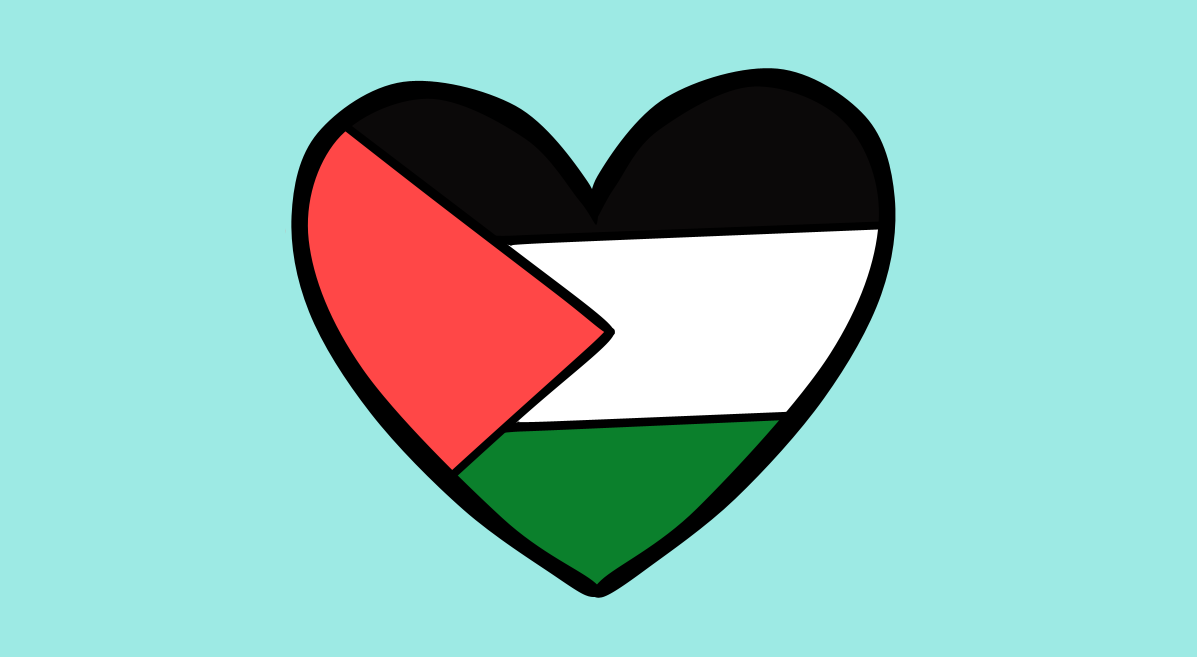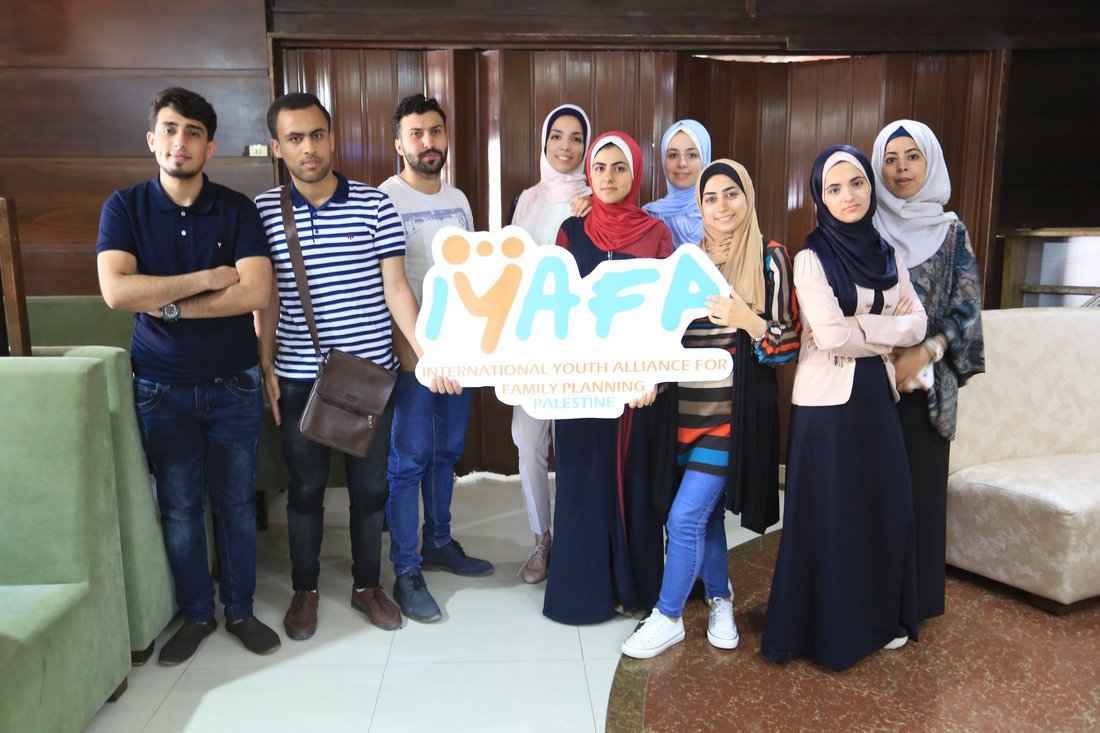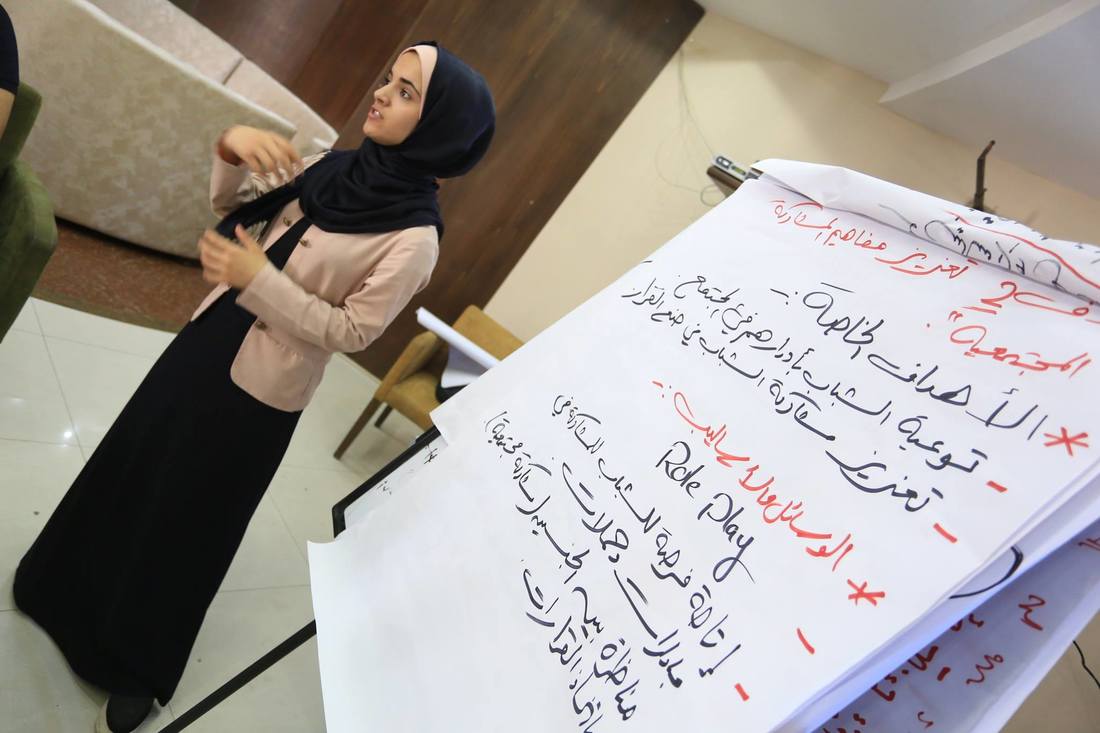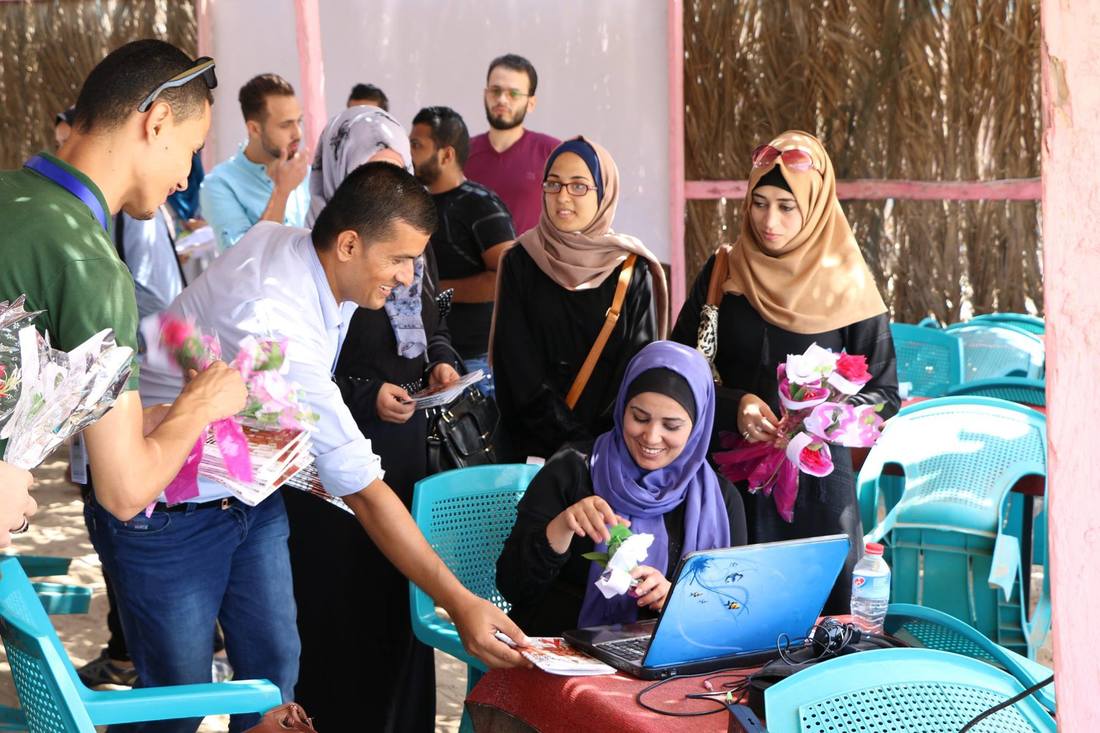Sex Ed in Gaza9/6/2018 An Interview with Gazan Sex Educator Mohammed Alkrunz While I was living in Jerusalem and trying to find sexuality-related initiatives in the area (for this zine), I came across the website of an organization called the International Youth Alliance For Family Planning (IYAFP for short). They’re a youth-run (ages 15 to 30) nonprofit that advocates for sex ed and sexual rights around the world. 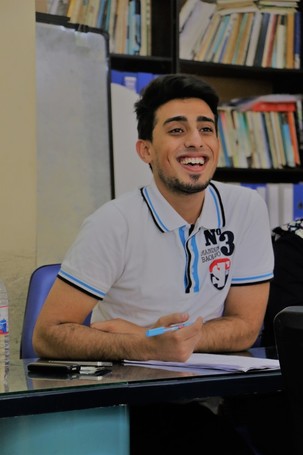 Mohammed Alkrunz Mohammed Alkrunz I was intrigued when I saw that they have a coordinator in Gaza working to improve sex ed there. I had never heard of sex ed initiatives in Gaza before, and I honestly had no idea what the state of sex ed and sexual rights was like there. Luckily, they had all the coordinators’ email addresses listed on the website, so I decided to just email and ask! This email exchange resulted in the following interview with Mohammed Alkrunz, country coordinator of Palestine - Gaza for IYAFP! Pleasure Pie: How did you become interested in sexual and reproductive health and rights? Why is this important to you? Mohammed Alkrunz: I have a principle in my life that youth must take part in everything surrounding their lives. I believe that creating a new generation of leaders in sexual rights, and creating a generation that can make responsible decisions about their bodies, is the best service we can give to our community. My passion in this area started when I was accepted to be a member of the international Youth Peer Education Network Y-PEER for 4 years, since these topics are one of their most important pillars. Then I tried to specialize more by joining the International Youth Alliance for Family Planning, and now I am finally a youth leader and advocate for sexual and reproductive health and rights (SRHR). As a youth leader, I am always carrying out the aims of improving the health services in areas related to SRHR. PP: How is sex education implemented in Gaza? Is it taught in schools? MA: The Gaza Strip is one of the most conservative areas in presenting these sensitive subjects, because of customs and traditions.
There is little sexual education in schools, and where it does exist, it is generally focused on the biological facts of life, rather than the emotional, physical, and psychological impacts, which are of greater importance to young people during this period in their lives. Little understanding of STDs & HIV, contraception, and so on, as well as unplanned pregnancies, is incredibly damaging to both young women and men, but principally to young women, who will feel the impact as a loss of ‘honour’, which will cost both them and their family, sometimes leading to outcomes as extreme as ‘honor killings.’ The Ministry of Education has tried to integrate some health issues and to deal with sexual matters in some of its school curricula. However, teachers in schools would not address these issues. As an alliance and platform for youth around the world, IYAFP is able to promote comprehensive sex education for this group through accurate and well-thought-out information presented in non-traditional and non-systematic ways. PP: How does the political conflict affect sex education in Gaza? MA: The Palestinian healthcare system suffers due to Israeli restrictions on the access to health care, as well as family planning and sexual health tools, through driving up prices, and restricting mobility. Furthermore, dependent on the political and economic situation of the city, there are differences between access to safe, inexpensive, and protected healthcare among different areas of the Gaza Strip. PP: Is trauma a big concern when talking about sexuality in Gaza? MA: Adolescents and youth are constantly exposed to psychological trauma due to the dual impact of the external Israeli occupation and the internal patriarchal society. There are high rates of anxiety, depression, post-traumatic stress disorder (PTSD), and stigma. So these factors are a barrier to accessing sexual education. Youth suffering from such psychological trauma are unlikely to seek help due to societal stigma including social pressures, family honor, and gender norms. There is also a distinct lack of youth-friendly health services that integrate SRHR and psychosocial support. Psycho-education must be increased in order to reduce concerns of stigma, which can lead to preventable deaths. PP: Are most people in Gaza able to access birth control? What about reproductive health care? MA: Access to healthcare varies in different areas of the Gaza Strip, depending on the political and economic situation of each city. PP: How common is child marriage in Gaza? How do local sex education programs address this? MA: Actually, child marriage is a serious problem facing my community. As of 2015, 23.7% of the total married population in the Gaza Strip had gotten married before the age of 18*. Child marriage is driven by socioeconomic factors, such as having multiple daughters, poverty, and harmful patriarchal norms that support forced marriage between first-degree relativesΔ.
Local sex education programs are working to change these social norms by increasing education on the negative consequences of child marriage. Advocates work with men and boys, women and girls, as well as religious leaders to increase awareness. PP: What misconceptions might people in the US have about sexuality and sex education in Gaza? MA: Given that Palestine and the Gaza Strip are very conservative in addressing such sensitive issues, it may be thought that sex education and sexual rights are not being discussed. People might think that Gazan teachers are not qualified to teach sexual education, which is not true. People might also think that there aren’t any laws and policies related to sexual rights. But Palestine has actually made notable progress in some areas. For instance, the maternal mortality rate has fallen significantly in the past twenty years. Also, the government is in the process of adapting new laws to address violence against women. The government has also made great efforts towards addressing HIV/AIDS. However, there are still some issues that need to be addressed, including: · Stigma and a lack of community awareness prevents people from getting tested for HIV and STDs. · Drafts of laws relevant to sexual rights like the Personal Status Law and Criminal Law are available but not yet ratified. · Comprehensive and age-appropriate education on sexual and reproductive health and rights is not provided in schools, although there were manuals developed for training teachers on SRHR. · Information on family planning methods is not consistently provided to women before or after they undergo an abortion. While family planning services are widely offered by the public health system, their full utilization is limited, especially for vulnerable women in marginalized communities because of hindrance to physical access, lack of awareness, and socioeconomic conditions. · There is limited participation of women, youth, and vulnerable groups living in the Gaza Strip in public life and decision-making, and limited accountability when it comes to women’s issues, including reproductive rights. · LGBT rights in the State of Palestine remain one of the most taboo human rights issues in the region. Homosexuality is illegal in the Gaza Strip.
PP: What are the biggest challenges to providing sex education in Gaza? MA: For decades, explicit sexual awareness has represented a red line in many Gazan households and schools, particularly in conservative or religious environments. However, religious education has touched on sexual issues one way or another. Many of the Quran verses define and set rules for sexual relationships, and so does the "Hadith" (accounts of the sayings, actions, and habits of the Prophet Muhammad [pbuh] that are used as life teachings). What adolescents won't find in a reliable source they will find in a thousand unreliable sources. Male and female youth usually get their information on sexual relationships through word-of-mouth communication, which results in misperceptions and faulty impressions. No doubt that prohibiting such discussions or pretending to be naive like previous generations did is not a valid option. Turning a blind eye to such issues will not make young people quit asking. For this reason, there is both an obsession with sex and a fear of it in Gazan societies. Discussions over sex education raise a frequently asked question: How can sex be taught in a way that is compatible with the conservative Arab culture? Sex education does not necessarily have to contradict Gaza Strip culture — the suitable terminology in such an educational program will not violate public decency. Sex education is a matter of utmost importance; it only needs a bit of flexibility. PP: Is there anything that people in the US can do to support your efforts? MA: Because partnerships are power, I hope to find some institutions in the US that are engaged in advocacy on these critical topics to make a positive impact in spreading the culture of comprehensive sex education. PP: On a more personal note, can you describe a typical day in your life? MA: I wake up at 7:30 AM, drink my usual coffee, and listen to the beautiful sound of Fairouz◊. My mother opens my day when she says, “Son, the ultimate responsibility always lies within you, and the opportunities are the ones you create.” I respond by saying, “Now I can open my day and go on in life.” I am a neonatal nurse so I work in a neonatal intensive care unit in a hospital in Gaza City. Then I return home at 2:30 PM to devote myself to my other volunteer work, including IYAFP and other networks. Actually for me, all days in my life are similar — there is no special day, maybe Saturday, Monday, Tuesday, or Friday as well. My favorite day is the day I can do the most work, and the best achievements. * According to the Palestinian Central Bureau of Statistics Δ A 2015 study on child marriage by the Gaza Strip by the Women Affairs Centre ◊ Fairouz is a popular Arabic singer whose songs are traditionally played to start the day. Mohammed Alkrunz is a Palestinian sex educator who lives and works in the Gaza Strip. You can find our more about IYAFP’s work at iyafp.org. This interview was originally printed in our zine, Sexual Freedom in the Holy City: A Guide to Finding Sex-Positivity in Jerusalem.
Questions and introduction by Nicole Mazzeo. Comments are closed.
|

